The medium is the message is McLuhan’s high level summary of the position and role of communication media in the development of human society. What he was saying was that the medium acts like a message, and that messages help us to understand changes in the world, dispel uncertainty, and have a social impact. But the media can also do this, even more so than the content, which has an impact that stems from the technological nature of the medium, but we are not aware of it.
McLuhan’s media theory opens up a perspective on human social development from the perspective of media technology, but this theory is simultaneously extreme and one-sided. This led to Neil Postman’s commentary and revision of McLuhan’s view that “the medium is the message” –“the medium is the metaphor”.The following quote is from “Amusing Ourselves to Death”.
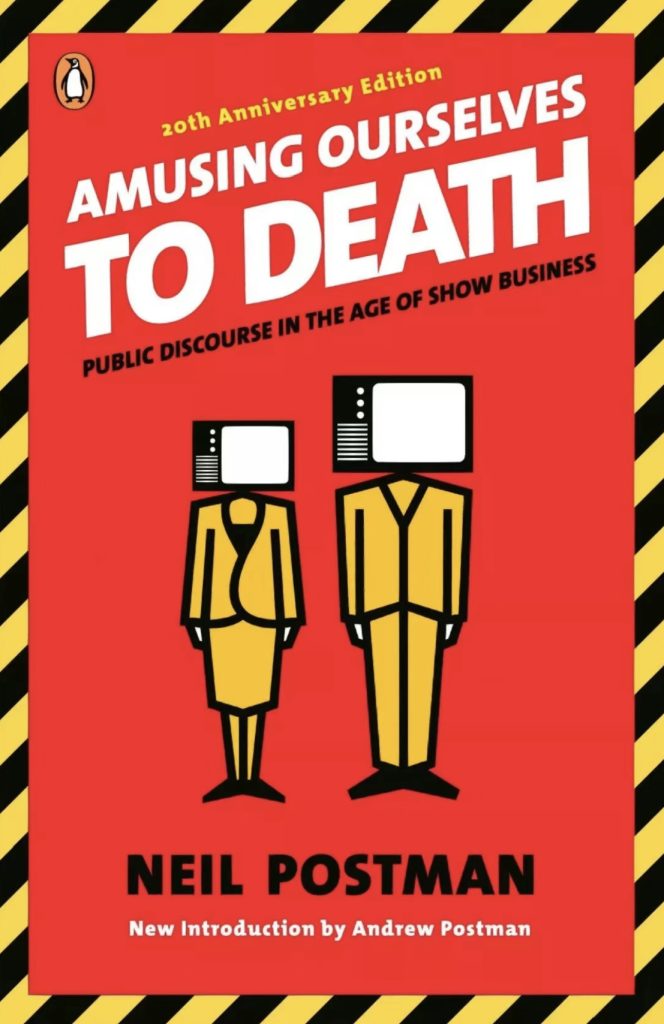
“If we consider that there is such a rich diversity of conversational tools beyond language, it is easy to imagine how divergent cultures can be in their worldviews. While culture is a product of language, every medium reinvents it – from painting to pictograms, from letters to television. Like language, each medium provides a new locus for ways of thinking, expressing ideas, and expressing emotions, thus creating unique discursive symbols. This is what McLuhan called ‘the medium is the message’.
However, his aphorism needs to be corrected, because the expression can lead people to confuse message with metaphor. Messages are clear and specific statements about the world, but our media, including the symbols that enable conversations, don’t have that function. They are more like metaphors, defining the real world with a covert but powerful suggestion. Whether we experience the world through speech or printed words or television cameras, this medium-metaphor relationship helps us to categorise, order, construct, zoom in, zoom out and colour the world, and to justify everything that exists.“
Neil Postman also argues in ‘Amusing Ourselves to Death’ that technology is not neutral, but has its own inherent tendencies, analyses the dangers of technological means, criticises the pernicious effects of the electronic media, which have had a profound impact on media literacy and education, defends the value of the print media, and expresses his concern about a modern society that is addicted to the electronic media.
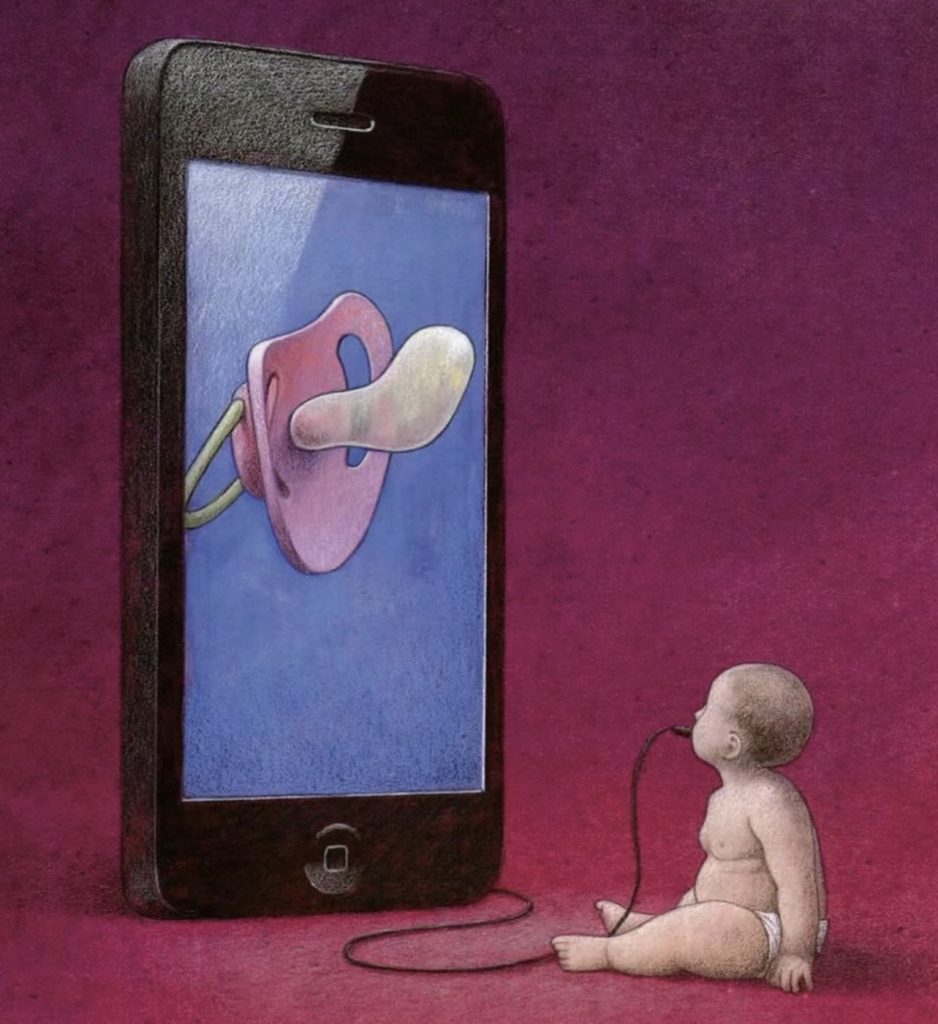
This reminds me of the “Tittytainment”, which refers to the idea that rising productivity accompanied by increased competition will marginalise 80 per cent of the world’s population, who do not have to and cannot participate in the production of goods and services, while 80 per cent of the world’s wealth is in the hands of the other 20 per cent. One of the ways to comfort the “outcasts” in society and avoid class conflict is for corporations to mass-produce “tits” – addictive, pleasurable entertainment and sensory-rich products that are not just for the eyes but for the heart. One of the ways to avoid class conflict is for corporations to mass produce “teats” – addictive entertainment and sensory stimulation (e.g., the Internet, television, short videos) that fill people’s lives, divert their attention and dissatisfaction, and make them lose their ability to think about real issues while immersed in “pleasure.
Take TikTok for example, TikTok features short bursts of video to quickly display a large amount of content. Although each video is short, users may constantly swipe through and see a large number of videos, which often leads to feelings of information overload, especially if users spend a lot of time on the app.TikTok users may feel a sense of satisfaction from browsing and watching videos, and this satisfaction may prevent them from engaging deeply with a valuable activity or issue. They may mistakenly believe that watching videos already contributes to social engagement or entertainment without further practical action. Other TikTok users may tend to view video watching as a social interaction and expressing themselves as a substitute for active participation in face-to-face or social activities. This informational substitution may result in fewer opportunities for them to have actual social interactions or engage in social issues.
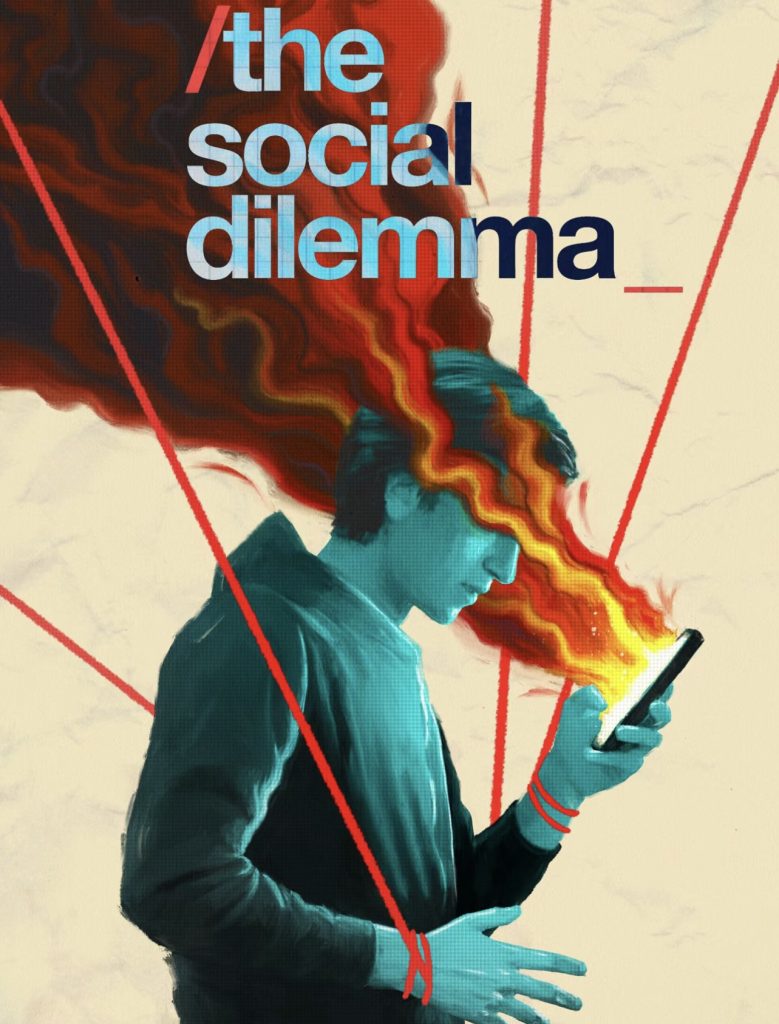
Nowadays for any Internet company, a successful product, when it has more users, has a longer user time, also can have more capital favour. Thus, all entrepreneurs are trying to make a product that is constantly addictive, such as the headline-based products that rely on algorithmic recommendations to stand out. China tictok recently announced that the number of daily users exceeded 600 million people, which means half of Chinese people consume time on Jieyin every day. ai knows exactly what everyone’s preferences and habits are, what time they are free, what they love to watch, what they want to buy ……
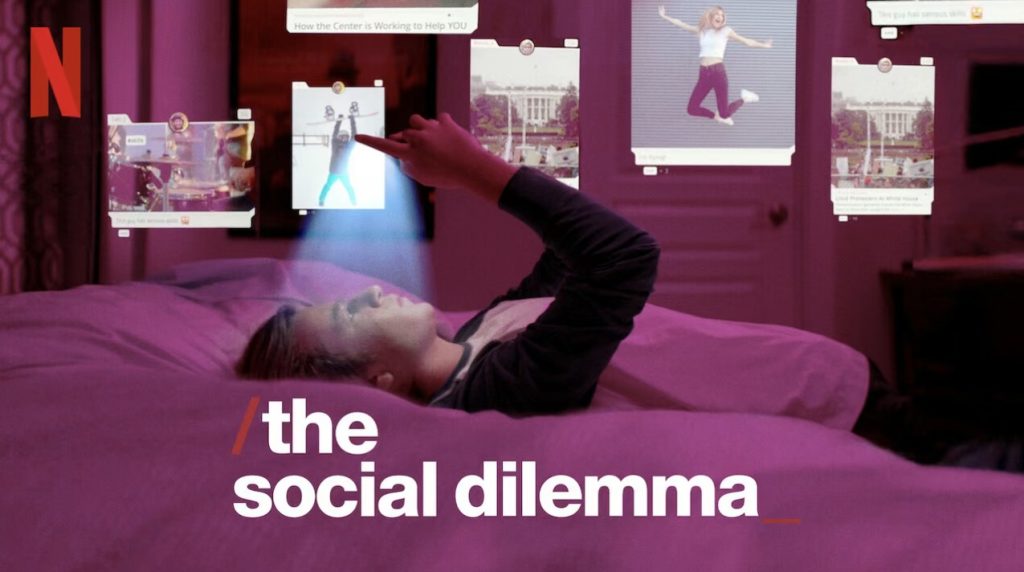
“We are more profitable to a corporation if we’re spending time staring at a screen, staring at an ad, than if we’re spending that time living our life in a rich way. And so, we’re seeing the results of that. We’re seeing corporations using powerful artificial intelligence to outsmart us and figure out how to pull our attention toward the things they want us to look at, rather than the things that are most consistent with our goals and our values and our lives.”
Games and entertainment are essential to people’s lives and have existed since the origin of human society, they are important elements in society and people’s lives. However, they are also designed to make more money so that people can spend more time on them. This calls for self-regulation of the industry and regulation of policies. Due to the popularity of the Internet, the collection of information has become more and more convenient and fast, and all the knowledge seems to be at your fingertips, but on the contrary, it has made many people lose the opportunity to think independently. So we need to keep ourselves a clear head and the ability to think in this noisy world.
Reference
Peter Martin,H(2006)Die Globalisierungsfalle:Der Angriff auf Demokratie und Wohlstand.
McLuhan,M(1964)Understanding Media:The Extensions of Man.
Postman,N(1985)Amusing ourselves to death.

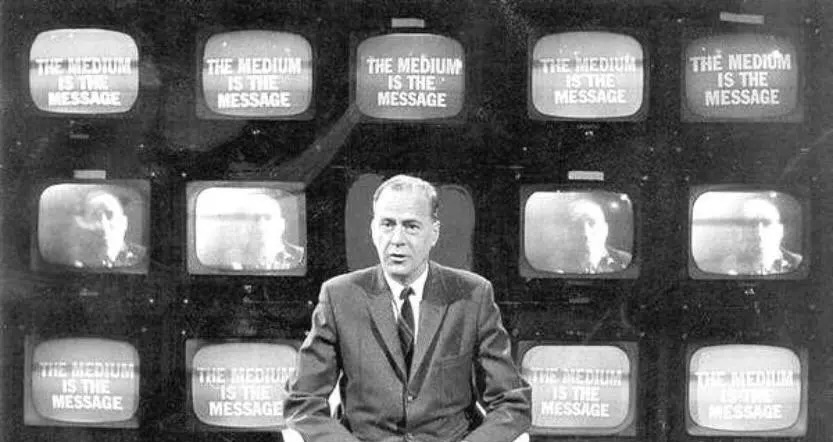
I agree that although today’s media technologies are new, their impact on our daily lives will not be much different from the impact of the past – media changes always pose challenges, but also create opportunities. We can use media to improve our quality of life, and we can also allow our lives to be seriously damaged. For society, media can be used both wisely and foolishly. In decision-making, we need media theories, which explain the important role of the media to individuals and guide the development of the media industry of the whole society.